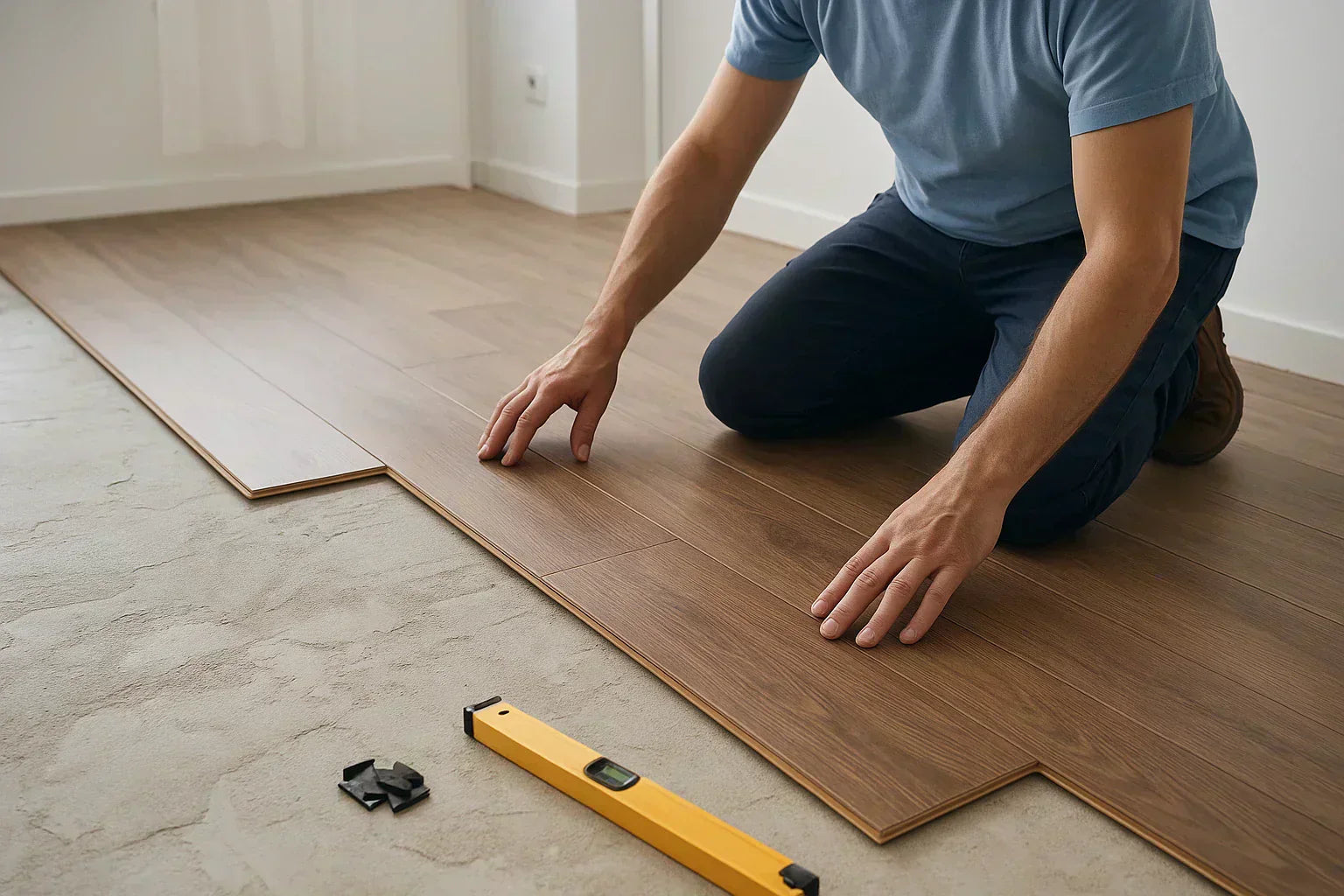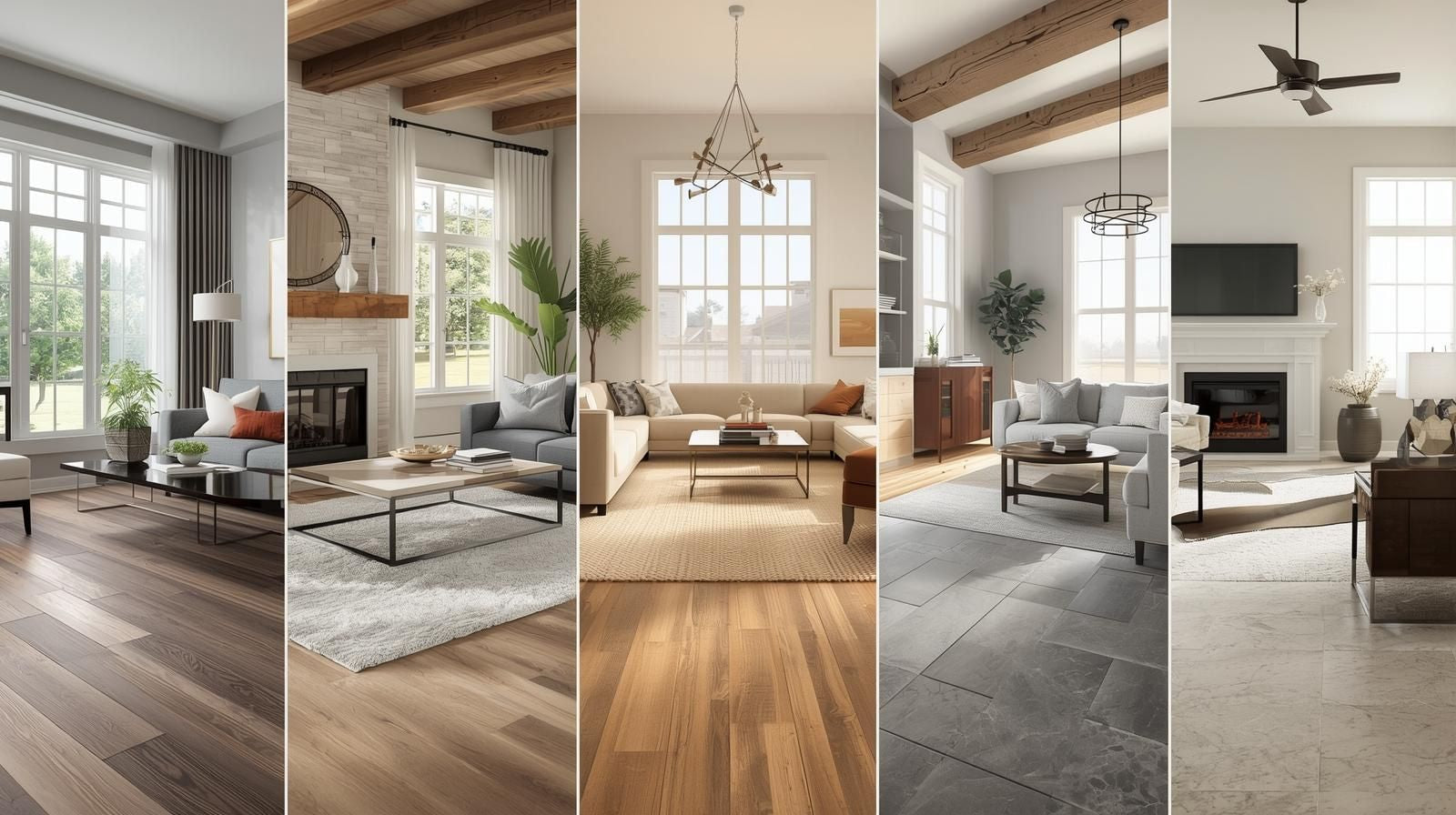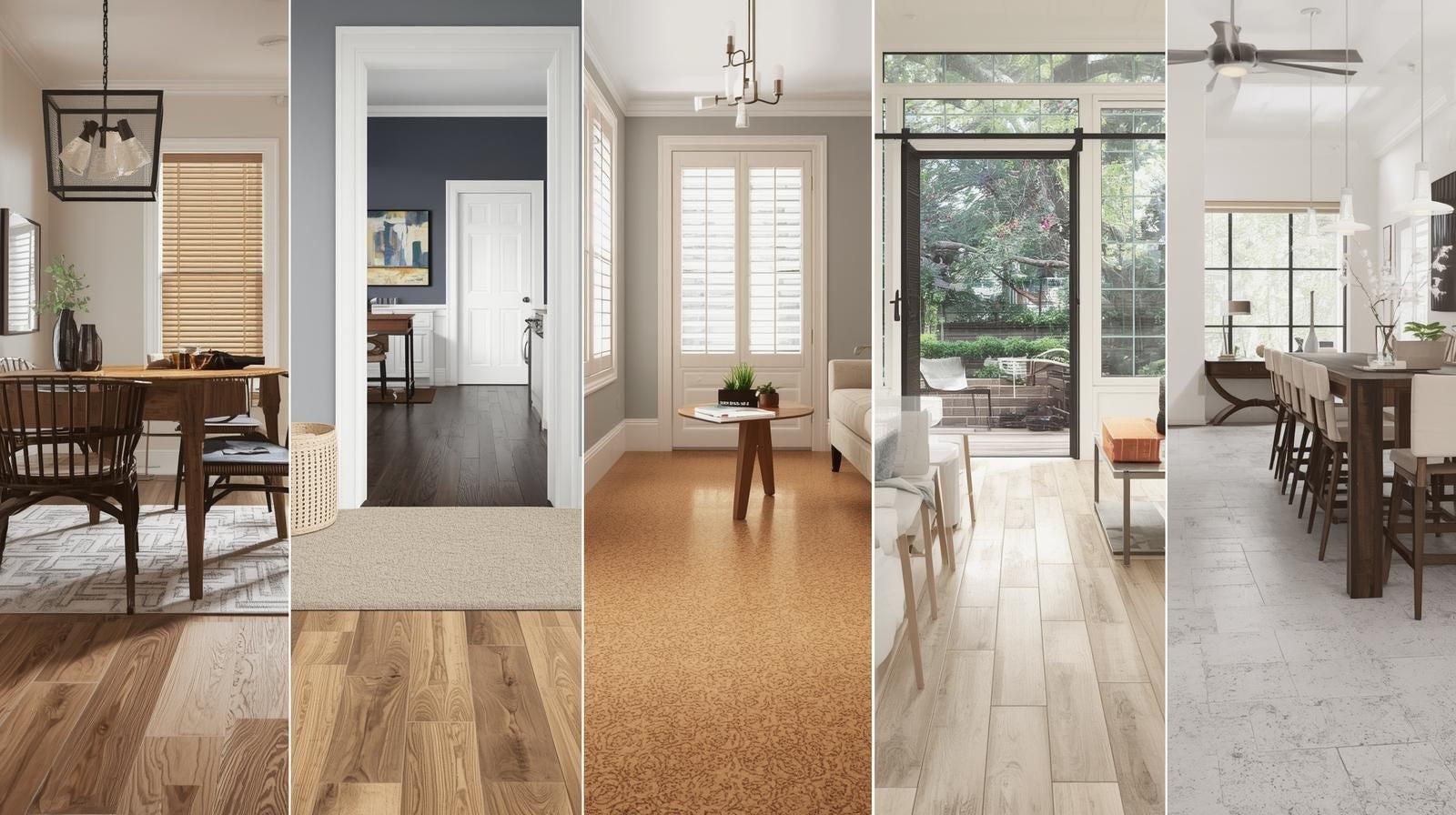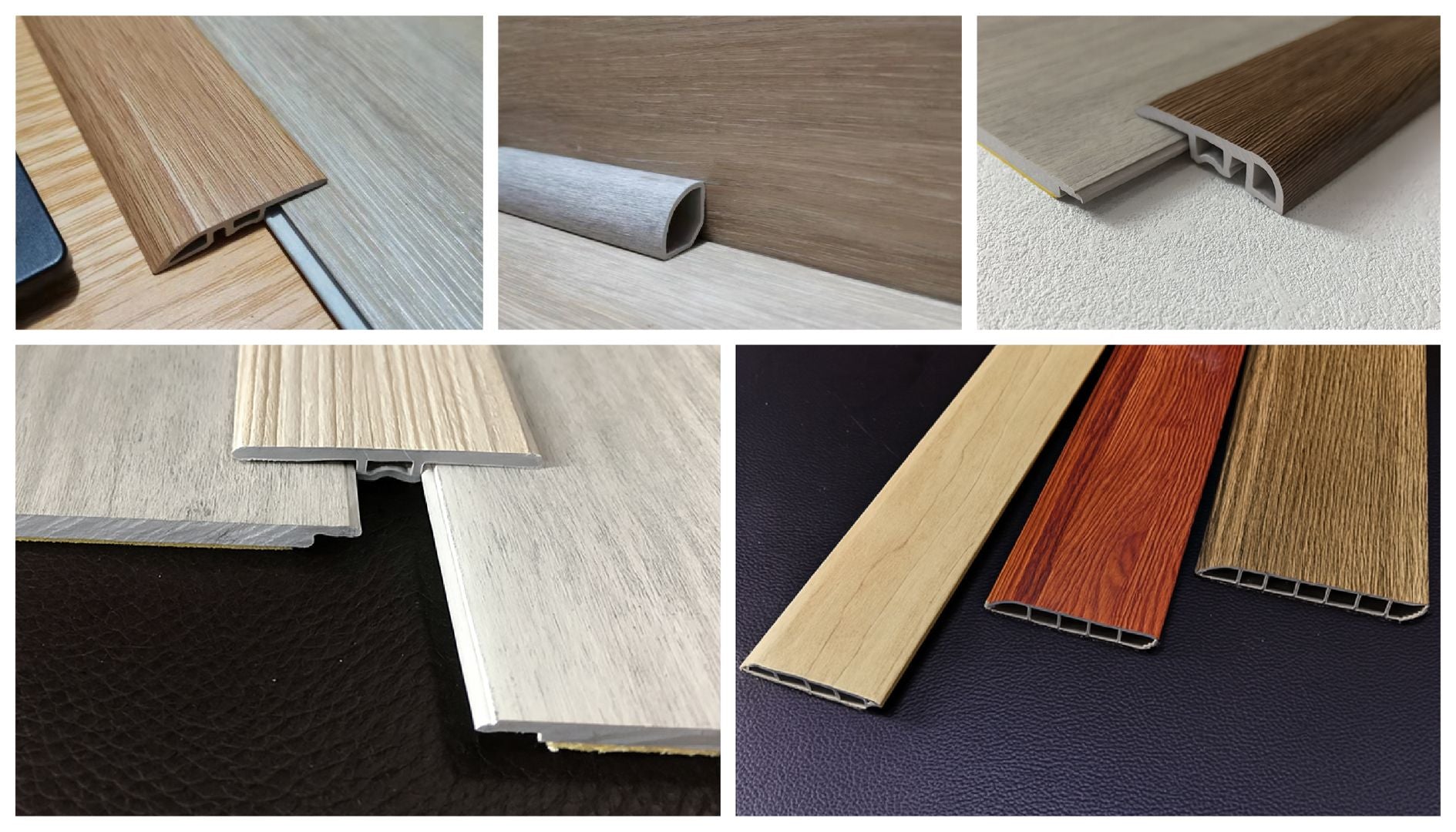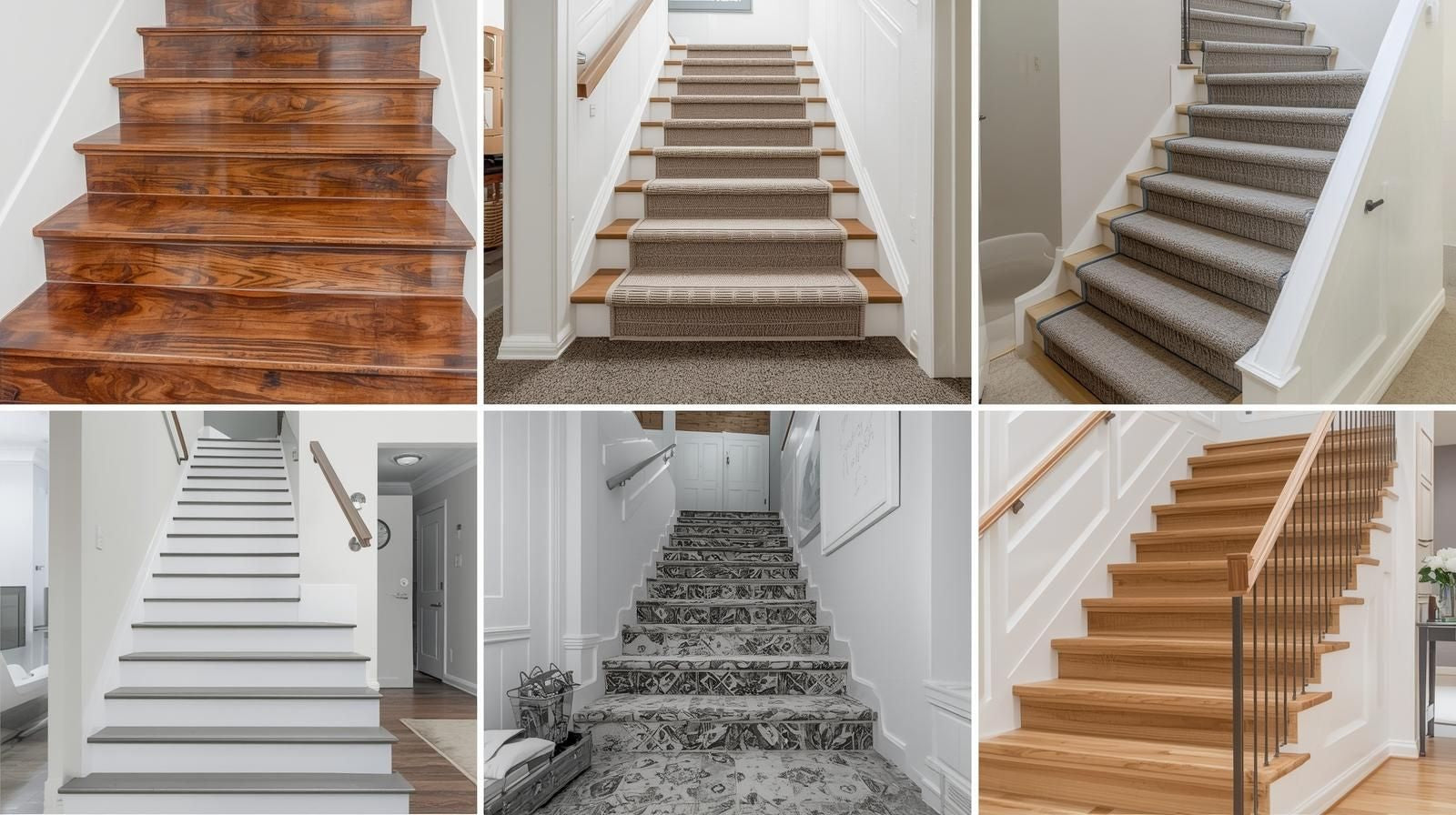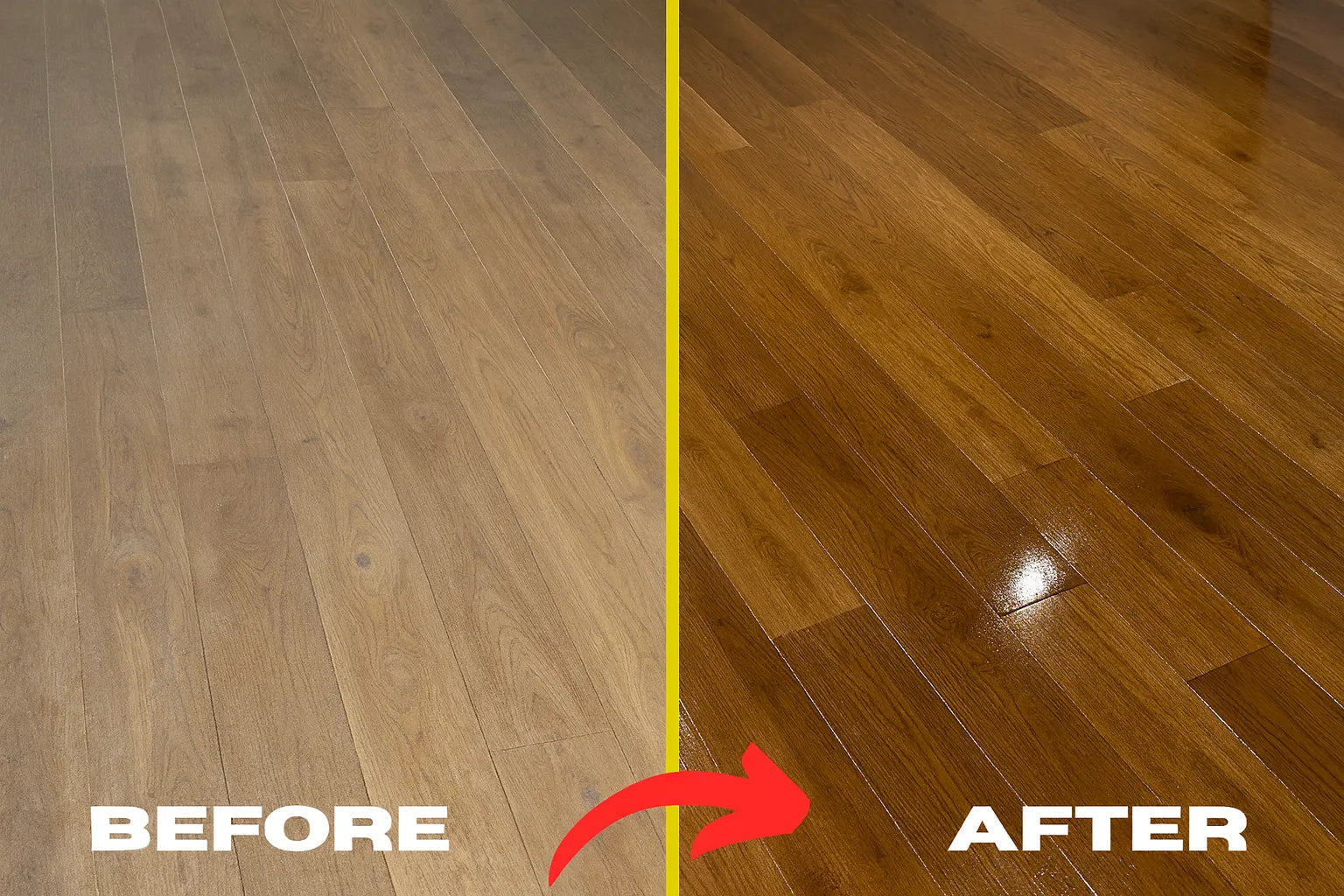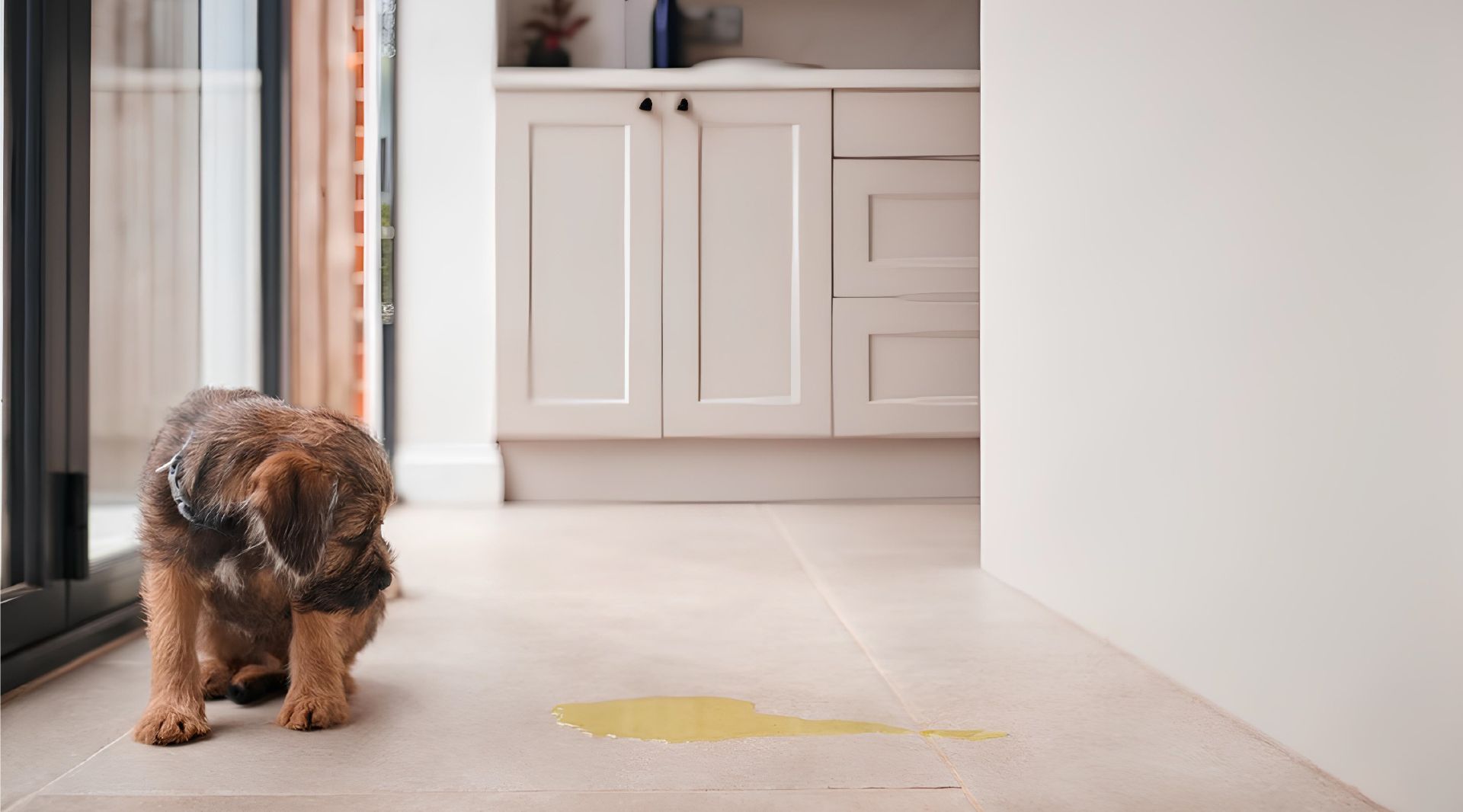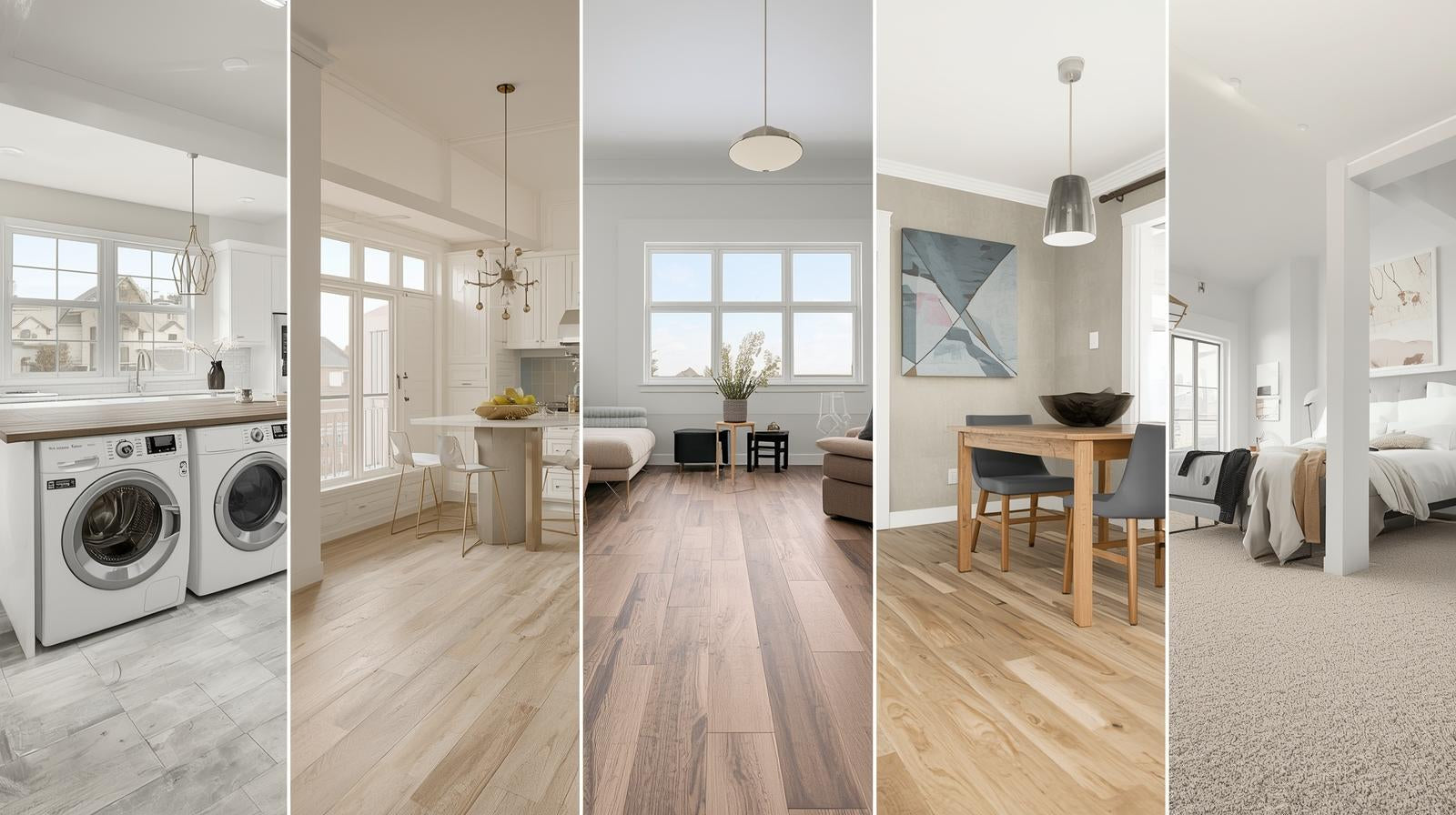Uneven floors can silently undermine your home's comfort, safety, and appearance. From wobbly furniture to creaking boards and cracked finishes, dips and slopes underfoot aren't just annoying but also reduce your property's value.
That's the reason the flooring choice needs real attention, as the right choice can make a huge difference. Some materials are naturally more forgiving on uneven surfaces, and some demand a perfectly flat subfloor.
In this guide, I'll list some of the best flooring options for uneven floors and what to avoid to ensure your next floor is both beautiful and durable.
Understanding Uneven Floors
This problem can be caused by many factors, such as an old building, settling over the years (which is normal), water damage due to moisture, or bad preparation of the subfloor.
- Slightly uneven floors (A few small dips, but you can walk on them without feeling unsteady) ➡ Luxury Vinyl Plank/Tile (LVP/LVT), Cork Flooring
- Moderately uneven floors (Only flat type of floor which is wavy when walking across) ➡ Laminate Flooring, Engineered Hardwood
- Severe uneven floors (There will be some places with noticeable slopes and humps) ➡ Carpet / Carpet Tiles, Rubber Flooring.
The level of unevenness determines which flooring materials will perform best and which installation methods will work.
1. Luxury Vinyl Floor/ Tile (LVP/LVT)

Best for: Basements, older homes, high-traffic areas.
Luxury vinyl flooring is a smart and modern choice for homes. It has a solid or semi-solid core and connects easily through a click system or glue. This type of flooring works well when the subfloor isn't perfectly smooth. Its flexible build is easy to install for slightly uneven floors.
You can pick waterproof or water-resistant kinds that fit best in basements or areas with moisture. The styles look like real wood or stone, so your floors not only last long but also look beautiful. Because the floating installation helps the material "ride over" minor dips or humps, you avoid the cost and mess of fully re-leveling in many cases.
Things to Check:
- Thickness (rigid core vs thin board)
- Click vs glue installation method
- Quality of the underlayment/support beneath
2. Laminate Flooring

Best for: Living rooms, bedrooms where unevenness is minor.
Laminate flooring has a floating installation system in which planks lock together and sit atop an underlayment. It offers moderate tolerance for slightly uneven subfloors, better than some rigid materials, though not as forgiving as vinyl in some cases.
Different laminate floor brands offer cost-effective flooring options compared to many higher-end flooring options, and offer many design choices, such as wood look, textured surfaces, and wide planks. For a home where the subfloor has only mild imperfections, laminate can deliver a good balance of budget and style.
Things to Check
- Less tolerant than vinyl of larger dips or unevenness
- Not always water-resistant (beware near moisture)
- Can feel hollow or unstable if the subfloor is badly uneven
3. Engineered Hardwood

Best for: Homeowners wanting the look of real wood and willing to invest in preparation.
Engineered hardwood flooring is a layered wood product (plywood or HDF core + hardwood veneer) that offers better stability than solid Hardwood, especially when used over subfloors that aren't perfect. It's a premium look with somewhat more tolerance for slight unevenness, but it still depends on good subfloor prep, and one should know the goods and bads of engineered flooring.
With the real wood veneer, you get authentic hardwood aesthetics, and the multi-layer construction helps resist warping or movement. For homes with charm where Hardwood makes sense, engineered hardwood flooring is a strong choice when installed correctly.
Check out the authentic brands of engineered Hardwood
Things to Check:
- Requires a relatively flat surface (more so than vinyl or carpet)
- Higher cost (material + installation)
- May bounce or squeak if the subfloor is not properly prepared
4. Carpet and Carpet Tiles

Best for: Bedrooms, finished basements, places where unevenness can't be fully fixed.
A carpet's soft layer helps smooth out small imperfections in the floor. You can use carpet tiles too; they let you swap a single piece if needed. Because it handles uneven floors well, carpet can save you the trouble of major repairs.
It brings a cozy and welcoming feel to your space, helps cover dips, and keeps the room warmer. For homes with some floor irregularities, carpet is often a practical and affordable choice.
Things to Check:
- Less durable than hard surface flooring (wear and tear)
- Not ideal in moisture-prone zones (e.g., basements without vapor control)
- Style limitations compared to wood/stone
5. Cork Flooring

Best for: Living areas; when you ensure a moisture barrier is installed over concrete.
Cork flooring is made from a natural material that flexes and adjusts to slight uneven spots in the floor. Its tiny air-filled cells create a soft, springy feel under your feet and help reduce noise in the room.
This type of flooring is eco-friendly and adds gentle warmth to your space. It's a good choice for living areas where you want comfort and a bit of bounce. When the subfloor isn't perfectly flat, cork can smooth things out nicely.
Things to Check:
- Susceptible to moisture damage (especially over concrete if not sealed)
- Heavy furniture may dent or leave marks
6. Rubber Flooring

Best for: Utility spaces, basements, high-traffic or play areas.
Rubber flooring is highly forgiving for uneven surfaces and is often used in gyms and commercial settings, but it has great applications in home spaces, too. Its resilience allows it to adapt to dips and small irregularities in the floor beneath.
Rubber flooring absorbs impact, stands up to heavy use, and adapts to imperfect subsurfaces. If you have a basement or service room where you don't mind a different look for the sake of durability and comfort, rubber is an excellent pick.
Things to consider
- Aesthetic limitations in some home-use rooms
- Cost may be higher than more standard residential flooring options
Flooring to Avoid or Use With Caution on Uneven Floors
Some materials are not suitable for uneven floors:
- Solid Hardwood
- Large-format tile or natural stone
- Thin floating boards
- Any flooring that requires a perfectly flat subfloor
If the unevenness is severe, sometimes correcting the subfloor is a better solution than trying to force unsuitable materials over it.
Factors for Choosing Flooring for Uneven Floors
Before you get into individual types of flooring, ask yourself these important questions — because the wrong answer can mean wasting money, and the right answer might save you from problems down the road.
- Underlayment and padding: Does the type of flooring call for a specific underlayment to be installed over the subfloor?
- Tolerance of the subfloor: How much flex will the material allow for dips, bumps, or slants in the substrate?
- The thickness and core rigidity: The plank or tile needs to be thick enough, and its core has to be rigid enough, so that it will span small variations rather than conforming perfectly to every bump.
- Budget and longevity: How much are you willing to spend, and how long do you want this floor to last in these circumstances?
- Type of installation: Are you going to install via floating, glue-down, or nail-down application? Some methods are also more forgiving of shitty subfloors than others.
FAQs
What is the least expensive flooring to put over problematic cement?
Carpet (with a thick pad) or basic vinyl sheet might also be some of the most budget-friendly options for an uneven subfloor since they can handle undulation better.
What is the best underlay for an uneven floor?
The optimal underlayment for uneven floors is a combination of self-leveling cement and a foam underlayment that flattens grooves and provides a stable foundation.
What is the best flooring for a basement with uneven floors?
The best flooring for uneven basements is waterproof luxury vinyl plank (LVP) because it floats over imperfections and handles moisture with ease.
What is the Best flooring for uneven floors?
If it's not level, you will want a floating floor, LVP, laminate, or engineered Hardwood… they don't demand a perfectly level slab.
What is the Best flooring for an old house with uneven floors?
Old homes with sloped or settled floors are best suited to flexible floating floors like LVP or engineered hardwood materials that conform without putting stress on your structure.
What is the best flooring for a kitchen with uneven floors?
When it comes to an uneven kitchen floor, your best bet is waterproof LVP, which can deliver durability, resilience, and ease of installation-even with a small amount of irregularity.
What is the best waterproof flooring for uneven floors?
The most reliable waterproof option for uneven floors is SPC or LVP flooring, which locks together tightly and floats smoothly over minor uneven spots.
Conclusion
If you have an uneven floor underfoot, the best way to cover it up is to apply a material that can adapt to the surface below and, at the same time, address any potential moisture or drainage issues. With extreme unevenness, consider that the right answer is partial subfloor correction, not shoe-horning budget flooring into terrain it can't handle and gambling on future failure.
If you are unsure what type of flooring is best for your uneven floors, let a professional take a look or call (833) 378 4559 to evaluate your subfloor to determine what the best solution is.


